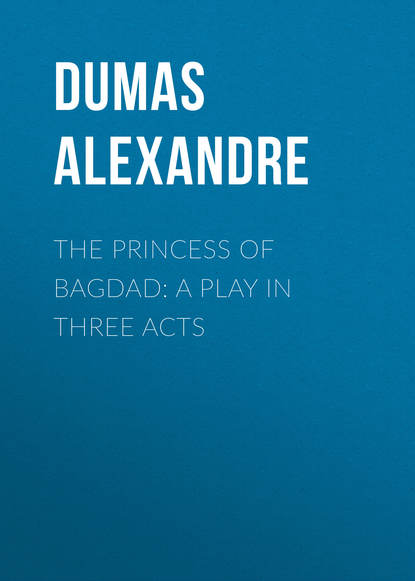По всем вопросам обращайтесь на: info@litportal.ru
(©) 2003-2024.
✖
The Princess of Bagdad: A Play In Three Acts
Автор
Год написания книги
2017
Настройки чтения
Размер шрифта
Высота строк
Поля
Very few jewels. A year ago Lionnette sold every jewel she had, with that heedlessness, that lightness of disposition, and that want of consideration, which are the basis of her character, and which you so well know.
Richard
Ah! well, when you have sold all that you can possibly sell, there will remain about four hundred thousand francs.
John
Of capital?
Richard
Of debts.
John
And the entail of my property?
Richard
Ten thousand pounds income, inalienable, and all in your own power, fortunately.
John
Is it impossible to realize the capital?
Richard
Utterly impossible. Your uncle foresaw what has happened, and, with the knowledge of your habits and the wishes of your mother, he was anxious to preserve to you always a crust of bread. There remains your sister.
John (with a doubtful tone)
Yes, my sister!
Richard
When you were married seven years ago, you know under what conditions, you had nothing more than what remained to you of the fortune of your father, about eight or nine hundred thousand francs. You made some legal interpellations against your mother in order to marry Lionnette – I call your wife Lionnette quite unceremoniously, as I knew her from her birth, – and your mother, even in her dying hour, did not pardon you. She has looked well after your sister's interest, and out of the 6,000,000 that she had she has left you only two, of which half went to pay the debts that you had already incurred. Your mother was a woman of clear perception…
John
Yes; but she ought to have understood…
Richard
It is not easy to understand or to excuse that which wounds us in our tenderest feelings and in our most sacred traditions. The Countess of Hun, your mother, was entirely against the marriage you made. She knew you to be a man led by a first impression, incapable of resisting the first impulse. These tendencies are dangerous, not only for him who has them, but also for those who surround him. My age authorizes me to speak in this way to you. Your mother has only done, then, what every prudent judicious mother, loving her son, would have done in her place. In spite of everything, you married Mademoiselle de Quansas. I do not say that you were wrong; I simply make, as a lawyer and friend, the summary of a moral and legal position, and, in face of the present difficulties, I try to find out what we can obtain from it. Your sister is married, and to a husband who is head of the community. She has five children; an inheritance invested at interest, the portion which ought to come back to you having been left and allotted by your mother to the minor children; your mother made your sister swear never to alter her disposition of the property. These are all excellent reasons for keeping her brother's money. I am a lawyer; I understand these legitimate scruples of conscience!
John
I start to-morrow for Rennes. I shall go to see my sister; she will yield, perhaps, for the honour of our name.
Richard
That name is no longer her's.
John
Nevertheless, I will try.
Richard
Let us hope, but do not rely upon it. Your wife also had hope to the last, and has made a last effort among the family of … her father: she has failed.
John
Yes.
Richard
There is still another plan.
John
And that is?
Richard
Call your creditors together, and offer them so much per cent.
John
Never.
Lionnette (who enters during these last words)
Never! If we have a sum larger than or equal to our debts, we must pay them fully; if we have only a smaller amount, we must give it to them on account, and look for means to procure the remainder; if we are not able to do it, then we have robbed all these confiding tradesmen, and there is but one thing left for my husband and me to do, that is, to shut ourselves up in a room hermetically sealed, set light to a pan of charcoal, and die together.
John (kissing her hands)
I adore you.
Richard
Yes, it is very fine, but like a drama or a romance, it is not reality.
Lionnette
On the contrary, it is the most simple thing in the world – for me, at least. Either life, with all it is able to bestow, or death, with all it can promise; I understand nothing else. Do you think that after living as I have done, at my age I am going to allow myself to live in a garret, to go to market, and to reckon accounts with the laundress and general servant? It is unnecessary to try, I could never do it. Hunting-hound, shepherd-dog, if you like; blind-beggar's dog, never!
Richard

















